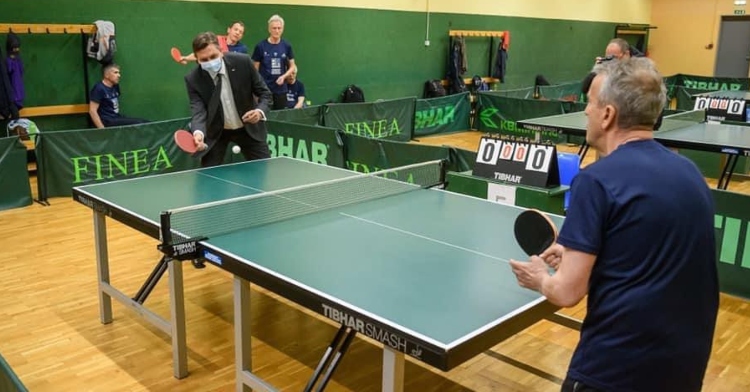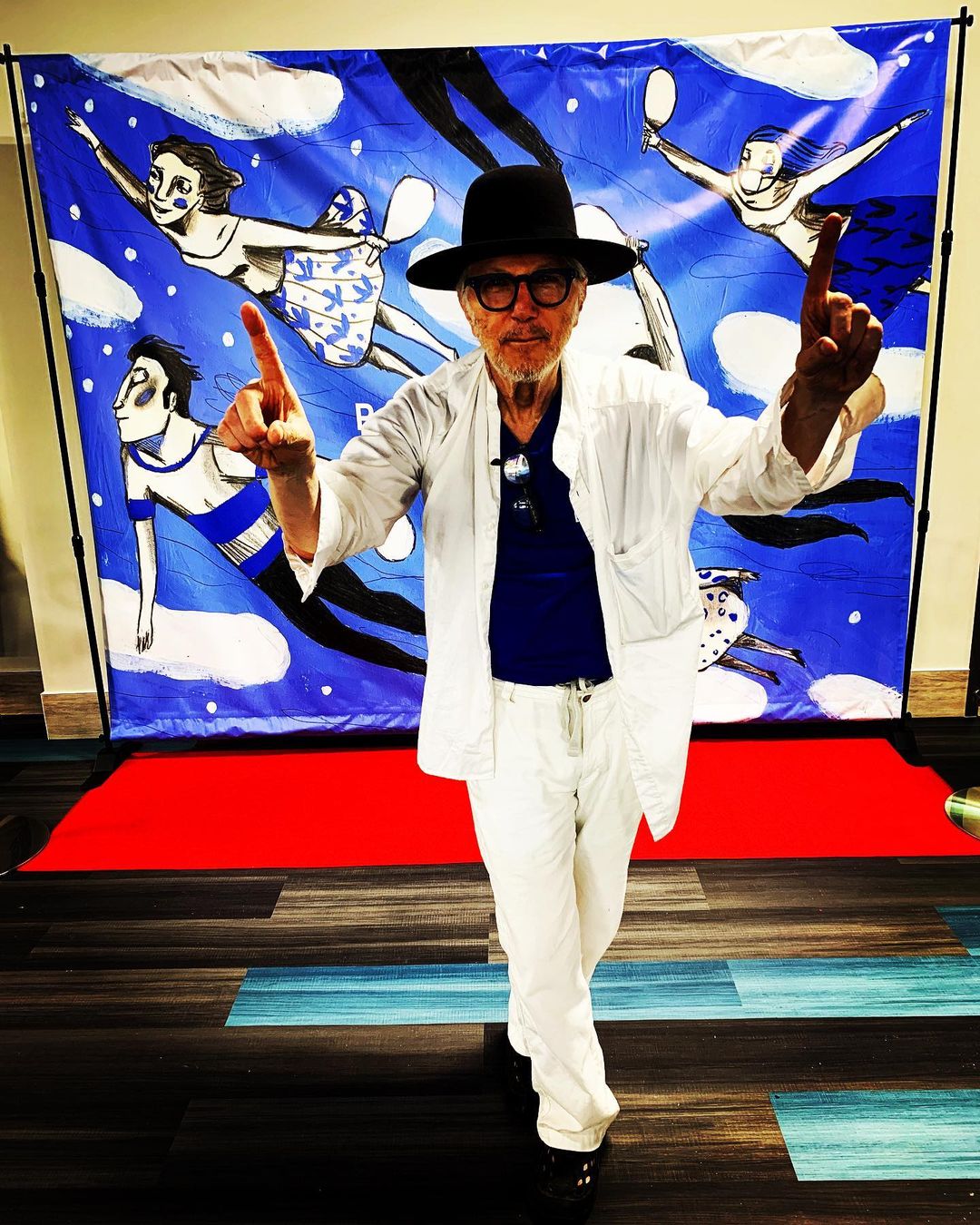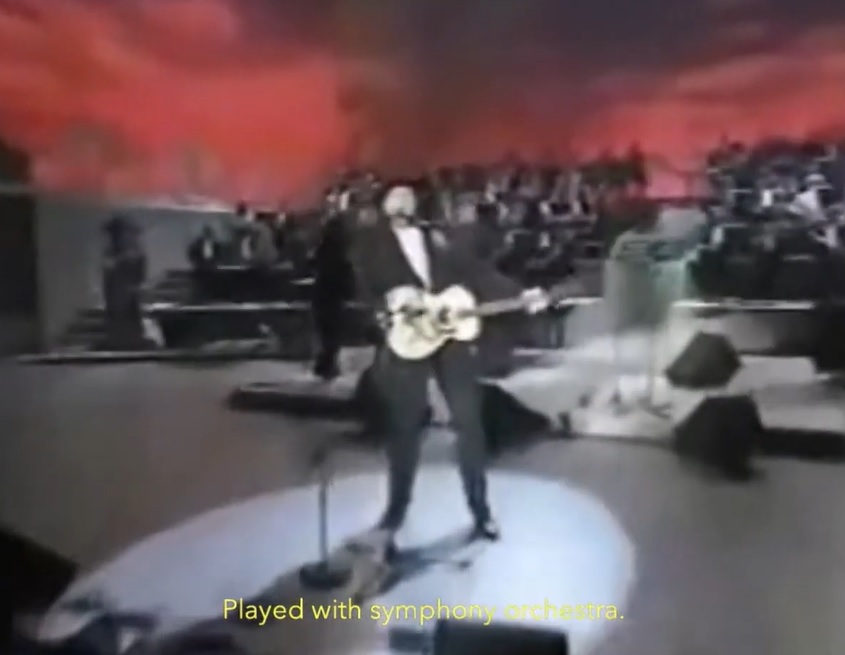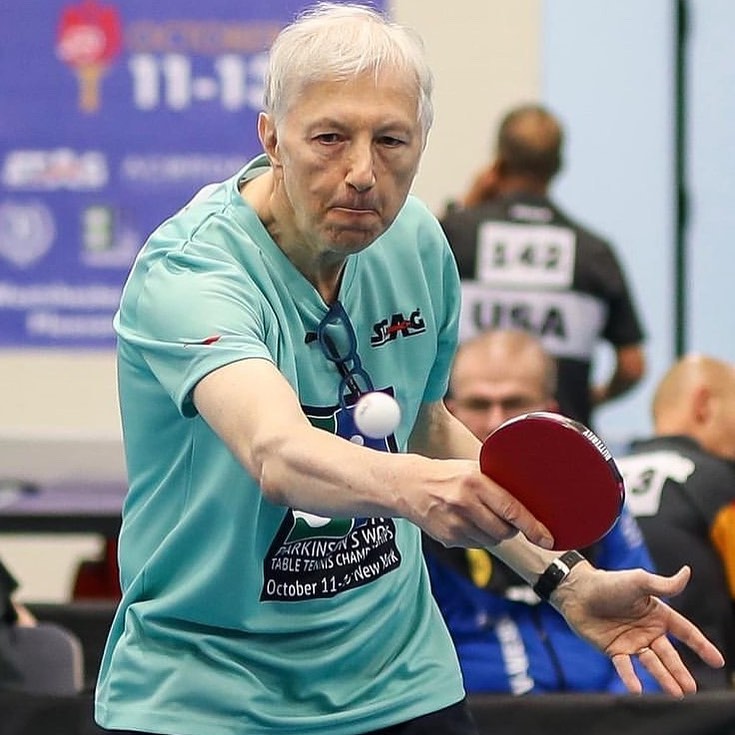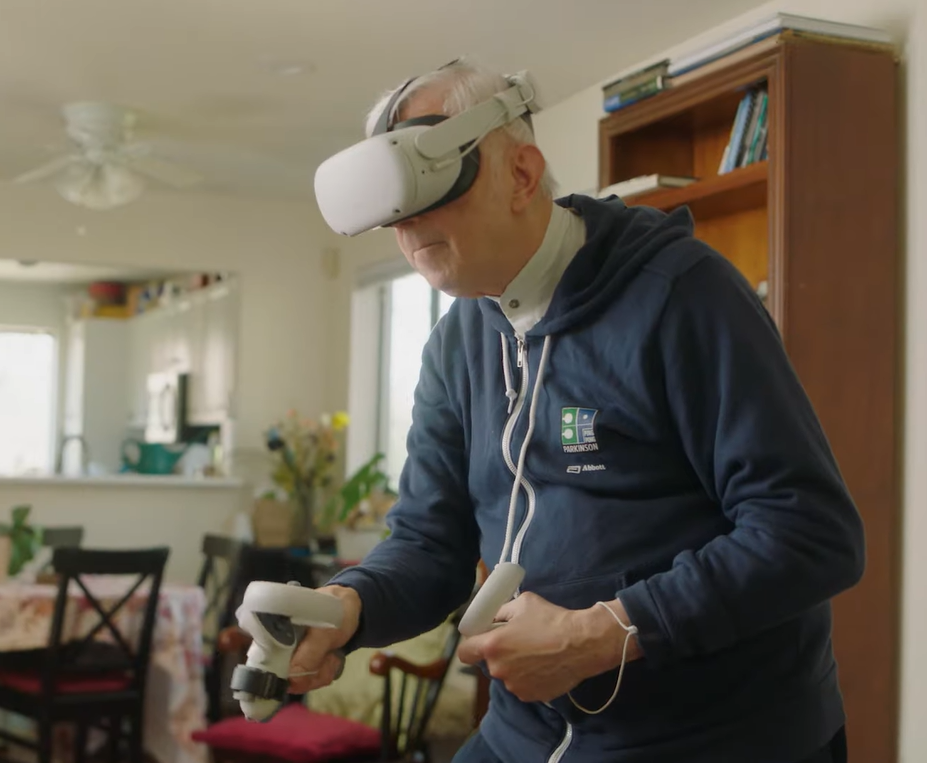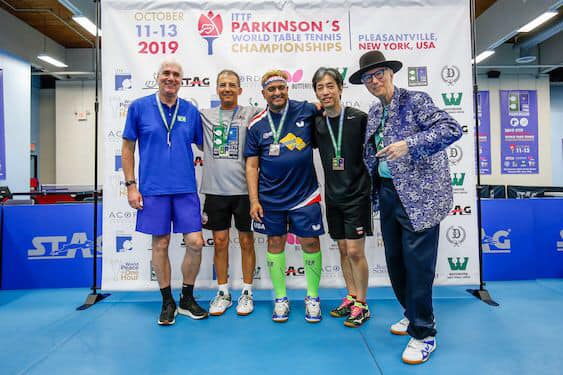We all know that physical exercise has curative powers, but who would have ever imagined that playing ping pong could help rewire the brain?
For decades, Croatian-American recording artist and activist Nenad Bach toured the world performing with famous musicians like Bono and Luciano Pavarotti. He rubbed elbows with royalty and partied with artists from The Band and The Grateful Dead.
Everything came to a screeching stop in 2010, however, when Nenad was diagnosed with Parkinson’s disease. This is the same nervous system disorder that affects Michael J. Fox, and it’s a progressive disease that affects a person’s movement. There’s no cure, and it gets worse over time. Suddenly, everything that Nenad had taken for granted in life was gone.
“Music is a passion of mine,” he said. “When I was diagnosed with Parkinson’s in 2010, I didn’t know what it was. Five years later, I couldn’t play a single chord on the guitar.”
One day, a friend of Nenad’s asked him to play ping pong with him, and Nenad said yes. The effects were immediate and positive: he woke up the next day filled with a “desire to live,” and his physical and cognitive issues had improved. Encouraged, he kept playing.
“Playing ping pong to me means freedom. Free of past. Free of future,” Nenad explained. “Once you observe the rotating, spinning ball in the air, you don’t think about anything else.”
For months he told everyone around him about how ping pong was helping his Parkinson’s, but his praise fell on deaf ears. Finally, he took matters into his own hands and started Ping Pong Parkinson’s sessions at the Westchester Table Tennis Center in Pleasantville, New York. Once the sessions gained momentum, he started a nonprofit called Ping Pong Parkinson (PPP) in March 2017.
PPP hopes to encourage people living with Parkinson’s to play ping ping for its multiple benefits. In addition to helping social stimulation, they also find that it increases neuroplasticity which creates new neural pathways in the brain. Nenad has seen the evidence of this theory with his own eyes many times in the past decade.
He told UpWorthy that their “facial expression changes from when they arrive ’til they leave. Plus some people start walking again.”
After the COVID-19 pandemic began, Nenad discovered that he could keep playing ping ping using Quest by Meta, a virtual reality program. He can play with other “pongers” from around the world, and the motions are just as effective as playing in real life.
“I learned a lot from others,” Nenad said. “Like my friend Lamine from Africa. He taught me how to play with different hands on a regular basis and challenge my brain.”
Nenad has made spreading the word about the power of ping pong his new life’s work! He hopes others will take up the sport and see the same sort of cognitive and physical improvements he’s enjoyed since the first moment he picked up a paddle.
Watch Nenad discuss the way ping pong can, and does, change lives in the video below, and don’t forget to share.
Want to be happier in just 5 minutes a day? Sign up for Morning Smile and join over 455,000+ people who start each day with good news.



